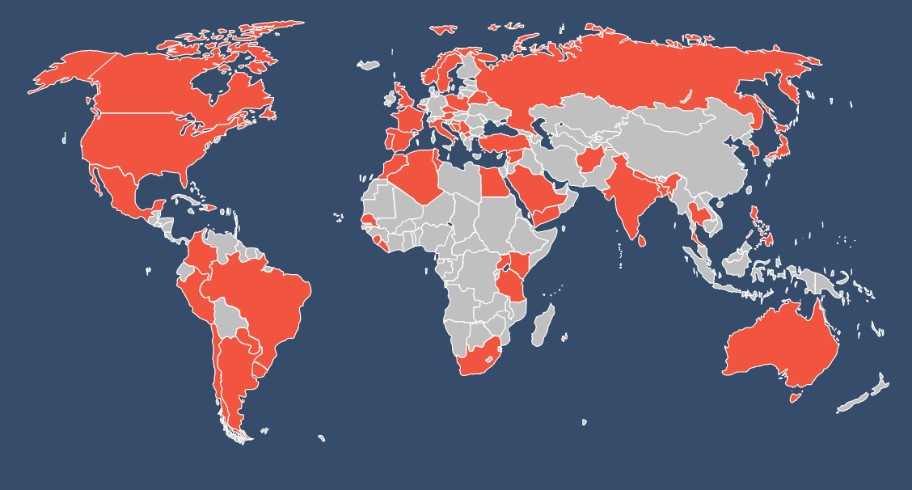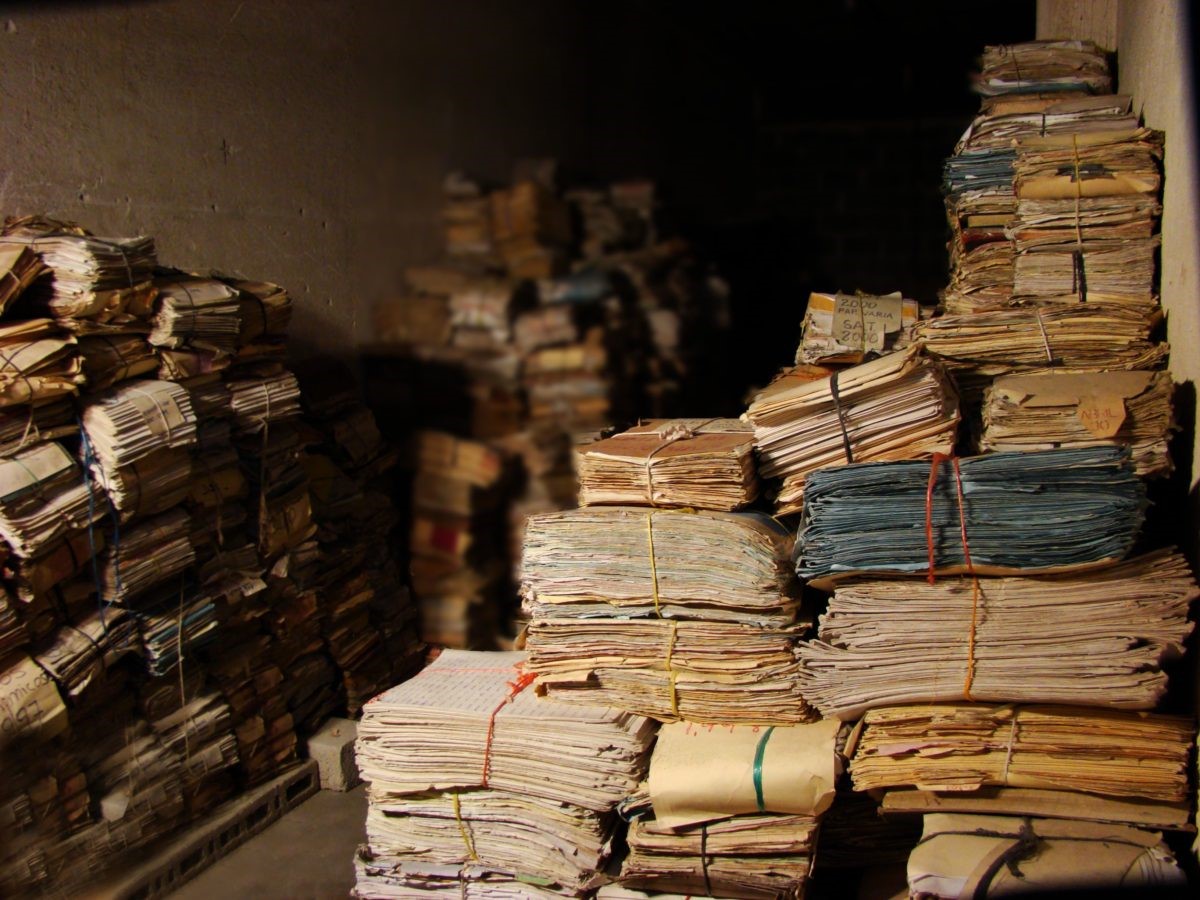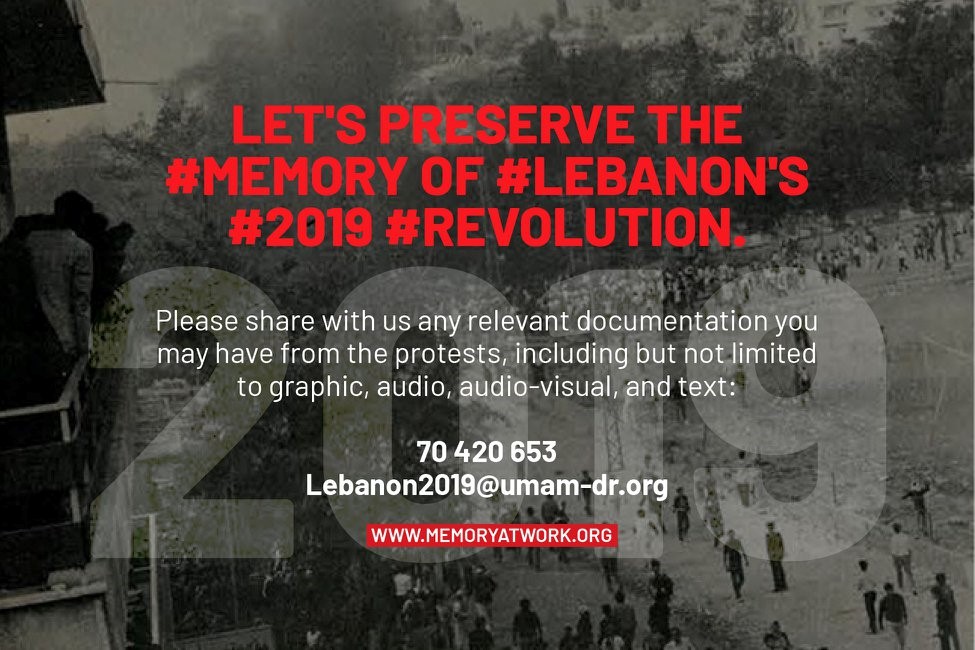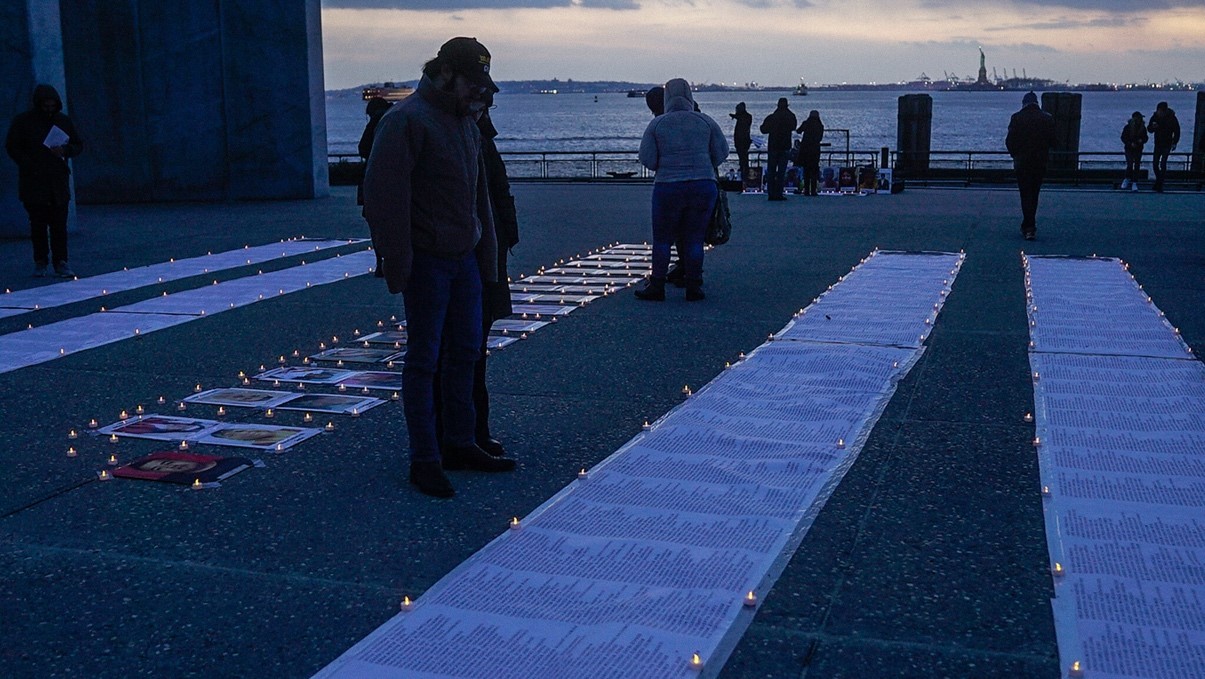Author: Linda Norris, Global Networks Program Director, International Sites of Conscience

Sites of Conscience around the World, 2019
The International Coalition of Sites of Conscience is the only worldwide network dedicated to transforming places that preserve the past into spaces that promote civic action. Archives—both governmental and citizen-based--form a vital part of many members’ work.
The Coalition recognizes that the power of sites of memory is not inherent; it must be harnessed as a deliberate tactic in the service of human rights and citizen engagement. This conscious effort to connect past to present and memory to action is the hallmark of the Sites of Conscience movement. As a network of more than 275 Sites of Conscience in 65 countries, we engage tens of millions of people every year in using the lessons of history to take action on challenges to democracy and human rights today. Through powerful participatory programs that bring people together across difference, we advocate for every community’s right to preserve places where struggles for human rights and democracy have occurred, to talk openly about what happened there, and to harness the strengths of memory, heritage, arts and culture to build ethical societies that envision and shape a more just and humane future.
A Site of Conscience is a place of memory – a museum, historic site, archives, memorial or memory initiative– that confronts both the history of what happened there and its contemporary legacies. Whether remembering an era centuries or decades ago, Sites of Conscience begin by facing all aspects of our history: stories of great cruelty, great courage or everyday life. Then they go a step further, activating the historical perspective with dynamic public dialogue on related issues we face today and what we can do about them. Founded in 1999, we are now more than 275 members in 65 countries around the globe.
Sites of Conscience are places that:
• Interpret history through site;
• Engage the public in programs that stimulate dialogue on pressing social issues;
• Share opportunities for public involvement and positive action on the issues raised at the site;
• Promote justice and universal cultures of human rights.
By highlighting the work of several Sites of Conscience, it’s our hope that it can inspire the work of others.
Governmental Archives
Archivo Historico de la Policía Nacional, Guatemala
In July of 2005, the Human Rights Ombudsman of Guatemala uncovered a secret trove of historical and administrative documents belonging to the former National Police of Guatemala. This collection relates to Guatemala’s period of internal armed conflict in which families, victims, and human rights organizations identified the National Police as major violators of human rights. Archivo Historico de la Policía Nacional is in the process of organizing and digitizing this massive collection, allowing citizens free and open access to this previously secret history.

Archivo Historico de la Policía Nacional
This museum holds the records of both the Special Court of Sierra Leone and the Truth and Reconciliation Commission, both of which addressed the responsibilities and legacies of the decade-long civil war. Intentionally, these archives are independent of the national government and exist as a separate entity. In the long run, one goal of the records is to use the documentation provided to create Sites of Conscience and memorials around the nation at sites of human rights abuses identified in the records.
Archives of Protest
As protests and revolutions happen, citizens and NGOs take up the challenge of collecting in the midst of rapidly changing events.
Revolution of Dignity Museum, Ukraine
During the Maidan Revolution in Ukraine in 2014, a small group of cultural professionals begin collecting archival materials, objects and oral histories on the Maidan, as the protests were happening. The result is the new Revolution of Dignity Museum. The museum is not yet built, but in an information center located on the Maidan, where the revolution happened, temporary exhibits, publications and events make use of those archival materials too.
The memorial-museum complex is intended to become a reputable innovative platform for affirming among the general public the values of civil society, based on the historical experience of the struggle of Ukrainians for their rights, an open forum for discussions and spreading ideas of dignity, independence, freedom, self-organization, promotion of activism and activism. development of society and formation of responsibility for the future.
UMAM Documentation and Research, Lebanon
UMAM had already begun a citizen archive, collecting everything from hotel registers to movie studio records, as a way of documenting life in Beirut. The archive aligned with their mission, “UMAM believes that dealing with Lebanon’s violent past is fundamental to eliminating the specter of renewed conflict.” However, as protests engulfed the country this past year, UMAM reacted rapidly, collecting all sorts of archival materials: protest signs, audio, and the like. They made use of social media, using Facebook to invite residents to share their materials with the Center and creating a website chronicling the protests.

Facebook post from UMAM
Archives to Action
We believe that museums, archives —our members turn memory into action.
Memorial Democratic, Spain
By recovering formerly repressed histories and voices, Memorial Democràtic aims to defend the Catalan citizens’ “right to remember.” The institution works to research, preserve, and publicize the history of the period 1931-1981, including the democratic struggle against fascism during the Spanish civil war, Franco’s regime, the citizens’ fight for democracy against the dictatorship, and the transition to democracy. They have used those archives to create Drawn Memory, a new illustrated collection of stories. With these memories these wish to “recognize the courage and effort of its protagonists and, at the same time, transmit these human values to present and future generations so that they can know, reflect and learn.”
Colibri Center, United States
The Colibri Center Colibrí began in 2006 as the Missing Migrant Project, a small volunteer initiative inside the Pima County Arizona Office of the Medical Examiner designed to organize information about people who were missing on the border in order to help identify the hundreds of individuals being examined by the forensic scientists in that office. Today, their mission is to end the disappearance and uphold human dignity along the U.S.-Mexico border. Their goals are to “bear witness to this unjust loss of life, accompanying families in their search and holding space for families to build community, share stories, and raise consciousness about this human rights crisis.” Their archives of both forensic records and oral history and storytelling, highlight this American crisis and advocate for change.
Archives, when made accessible, have the power to bring communities together by exposing shared histories as a starting place for understanding the present. Archives not only shine light on historical truths, they also identify the players, creating opportunity for accountability and transparency that can lead to justice for the individuals and communities that have endured human rights abuses. The dedicated and innovative work of Sites of Conscience around the world help create a more just future for all.

Colibri Center, Vigil for Migrant Deaths & Disappearances in New York City
To learn more about the International Coalition of Sites of Conscience and the work of individual members, visit www.sitesofconscience.org or contact Linda Norris at lnorris@sitesofconscience.org.